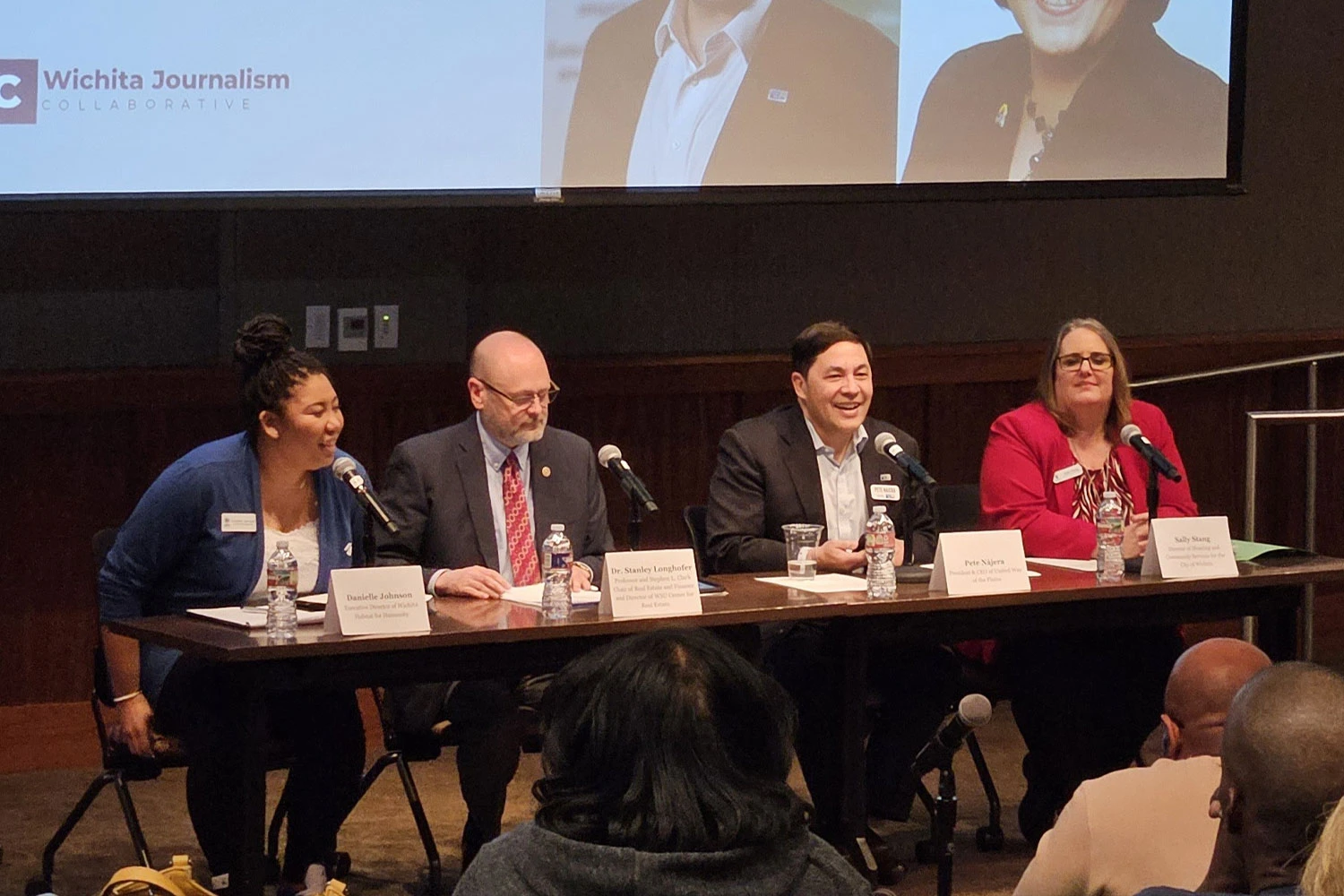
Wichita faces housing shortage: Community seeks solutions
A recent community listening session in Wichita, hosted by the Wichita Journalism Collaborative, brought together residents, housing experts, and city officials to discuss the city’s pressing housing issues.
The key takeaway? Collaboration.
Collaboration is crucial to address the shortage of affordable housing units and prevent the issues plaguing other communities. This will involve several initiatives including:
- Increasing housing supply – This could involve building smaller, multi-unit residences, duplexes, and townhomes, which might require zoning adjustments.
- Renovating existing housing – Addressing the city’s aging housing stock is important to ensure its livability and stability.
- Analyzing wages and zoning – We would need to understand the wage gap and potential zoning limitations, which can generate strategies to make housing more affordable.
From the panel, the Wichita Journalism Collaborative invited four panelists to discuss the future of Wichita housing. The panel consisted of: Danielle Johnson, executive director of Wichita Habitat for Humanity, Dr. Stanley Longhofer, professor and director of Wichita State University’s Center for Real Estate, Pete Najera, president and CEO of United Way of the Plains, and Sally Stang, director of Housing and Community Services for the City of Wichita.
Wichita faces a housing shortage of at least 50,000 units, leaving many residents struggling to own a home in the city. While Wichita Habitat for Humanity receives over 100 applications in the recent year, the organization only averages building 15-16 homes in a year. It is crucial to find solutions that address our housing concerns in Wichita, but with wages not being able to keep up the pace with rising housing costs, it makes it difficult for families to afford rent or even purchase a home. It also makes it harder as building costs and appraisal discrepancies discourage developers from constructing affordable homes in certain areas of the city.
Many community members expressed their concerns and suggested more diverse housing options beyond single-family homes, rehabilitating existing affordable housing, and encouraged entrepreneurships to empower residents and contribute to our economic development.
As we move forward, these community listening sessions will be an important asset to guide the city’s housing landscape and challenges. This collaborative approach aims to raise awareness and find solutions to ensure Wichita’s housing situation is resolved over time. Please continue to engage and attend future discussions hosted by various organizations, as we continue to find affordable housing solutions, and contact your representatives and express your concerns.